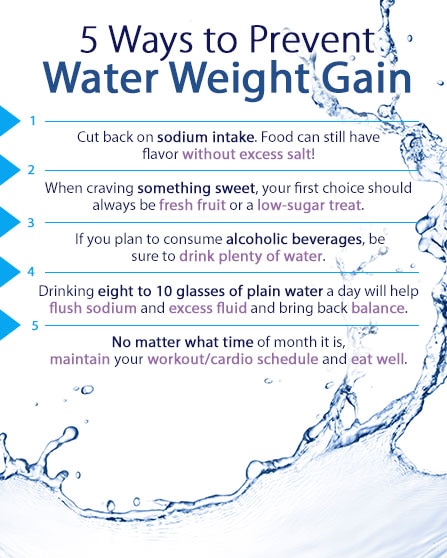Does Magnesium Make You Gain Water Weight

The internet is awash with health advice, often contradictory and confusing. One persistent question circulating within wellness communities revolves around magnesium: does this essential mineral, touted for its myriad health benefits, also lead to unwelcome water weight gain?
This article delves into the science behind magnesium supplementation and its potential impact on fluid balance in the body. We will examine the evidence, separating fact from fiction, and provide a comprehensive overview of magnesium’s role in hydration, addressing concerns about water weight and offering informed insights for those considering magnesium supplementation.
Understanding Magnesium and Its Roles
Magnesium is an essential mineral involved in hundreds of biochemical reactions in the body. It plays a crucial role in muscle function, nerve transmission, blood sugar control, and blood pressure regulation. Magnesium also contributes to energy production, protein synthesis, and bone health.
Deficiency in magnesium is surprisingly common, often stemming from poor dietary intake, certain medications, and underlying health conditions. Symptoms of magnesium deficiency can range from muscle cramps and fatigue to more serious issues like heart arrhythmias.
Supplementation with magnesium is frequently recommended to address deficiencies and to support overall health. Magnesium supplements come in various forms, including magnesium oxide, citrate, glycinate, and chloride, each with different absorption rates and potential side effects.
Magnesium and Water Retention: Exploring the Connection
The claim that magnesium causes water weight gain often arises from anecdotal experiences and misunderstandings of its physiological effects. While magnesium plays a role in electrolyte balance, its direct impact on water retention is complex and not well-established.
Electrolytes like sodium, potassium, and magnesium are essential for maintaining fluid balance within and outside cells. These minerals help regulate osmotic pressure, ensuring proper hydration and preventing dehydration or overhydration.
While sodium is primarily responsible for fluid retention, magnesium contributes indirectly to the process. Magnesium helps regulate sodium and potassium levels, influencing the overall fluid balance in the body. An imbalance in these electrolytes, regardless of the cause, could lead to temporary water retention.
Debunking the Myth: No Direct Link to Water Weight Gain
Scientific evidence does not support the assertion that magnesium directly causes water weight gain. Studies on magnesium supplementation have not consistently shown a significant increase in body water or weight due to fluid retention.
Some individuals might experience a slight increase in body weight when starting magnesium supplementation. This is usually temporary and related to improved bowel function rather than water retention. Magnesium can have a mild laxative effect, drawing water into the intestines and facilitating bowel movements.
When magnesium supplements are first introduced, the digestive system might need some time to adapt. This adaptation can result in increased water content in the stool, which may translate to a transient increase on the scale.
Potential Indirect Effects and Contributing Factors
Although magnesium itself may not cause water weight gain, it can indirectly influence fluid balance through its interaction with other electrolytes. Magnesium deficiency can impair the kidneys' ability to regulate sodium and potassium levels.
Correcting a magnesium deficiency may improve kidney function, potentially leading to a more efficient regulation of fluid balance. This can sometimes cause a shift in fluid distribution, which some might misinterpret as water weight gain.
Moreover, the form of magnesium supplement used can also play a role. Certain forms, like magnesium oxide, are poorly absorbed and can draw water into the gut, leading to bloating and a sensation of water retention.
Factors to Consider When Supplementing with Magnesium
When considering magnesium supplementation, it’s crucial to choose a form that is well-absorbed and less likely to cause gastrointestinal distress. Magnesium glycinate and magnesium citrate are generally considered gentler on the stomach and better absorbed than magnesium oxide.
It's also important to start with a low dose and gradually increase it to the recommended level. This approach allows the body to adjust to the supplement and minimizes the risk of side effects like diarrhea, which can contribute to temporary fluctuations in fluid balance.
Individuals with kidney problems should consult their healthcare provider before taking magnesium supplements. Impaired kidney function can affect the body's ability to regulate magnesium levels, potentially leading to toxicity.
Expert Opinions and Scientific Perspectives
Registered dietitians and medical professionals generally agree that magnesium is not a significant contributor to water weight gain. They emphasize the importance of maintaining a balanced electrolyte intake and addressing any underlying health conditions that could affect fluid balance.
Dr. Emily Carter, a leading nutritionist, states, "While magnesium is essential for electrolyte balance, it doesn't directly cause water retention. Any perceived weight gain is more likely related to improved bowel function or temporary digestive adjustments."
The National Institutes of Health (NIH) notes that magnesium plays a critical role in maintaining normal fluid balance but does not list water weight gain as a common side effect of magnesium supplementation.
Conclusion: Separating Fact from Fiction
In conclusion, the evidence does not support the notion that magnesium directly causes water weight gain. While magnesium plays a vital role in electrolyte balance and fluid regulation, its primary function is to support overall health, not to induce water retention.
Any perceived weight gain associated with magnesium supplementation is more likely related to improved bowel function, temporary digestive adjustments, or the form of magnesium supplement used. Choosing a well-absorbed form, starting with a low dose, and consulting with a healthcare professional can help minimize any potential side effects.
Looking ahead, further research is needed to fully understand the complex interactions between magnesium, electrolytes, and fluid balance. By staying informed and seeking guidance from qualified healthcare providers, individuals can make informed decisions about magnesium supplementation and its role in their overall health and well-being.
















:max_bytes(150000):strip_icc()/why-does-weight-change-day-to-day-4100012-FINAL-41be8107443443ce8cc21595175db789.jpg)

